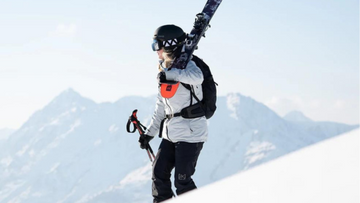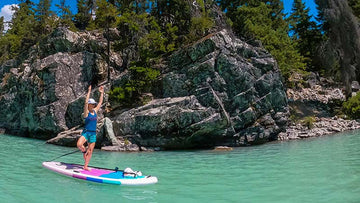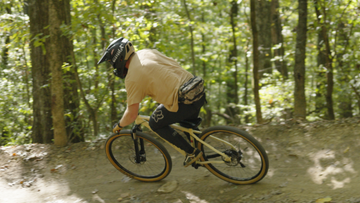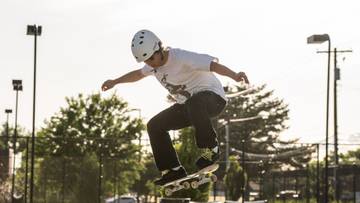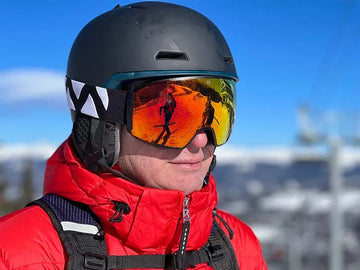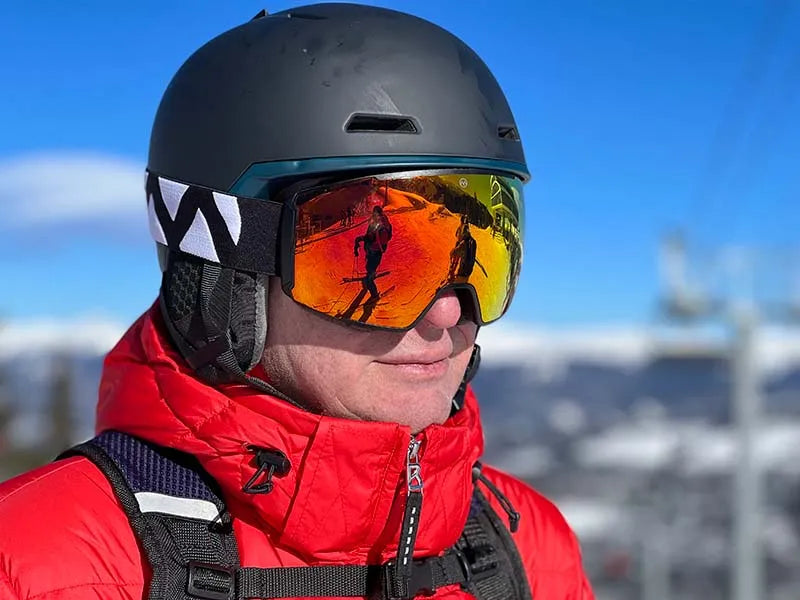
The mountains are a fantastic playground for active people, but they also provide the perfect backdrop for exercise, even in the winter. Therefore, you can keep up or start a fitness regime by attaching planks to your feet and heading for the hills.
There are many health benefits of skiing and snowboarding. So, whether you hit the slopes a couple of times a year or live near the mountains, you can use these winter sports to improve your physical and mental well-being.
In this article, I'll go through some of the health benefits of skiing and snowboarding. Some of them may seem obvious, but you may be surprised by the different ways skiing and snowboarding improve your health.
Let's get into it!
Table of content
1. They Improve Your Strength 2. Skiing And Snowboarding Strengthens Your Core 3. Improves Flexibility 4. Skiing And Snowboarding Burn Lots Of Calories 5. You Get Stronger Bones 6. Improves Proprioception 7. Skiing And Snowboarding Work Wonders For Your Mental Health 8. Skiing And Snowboarding Are Social Activities 9. Skiing And Snowboarding Are Character Building 10. They Help You To Sleep 11. Improves Your Circulation Final Thoughts1. They Improve Your Strength

Skiing and snowboarding require you to hold a squat position, turn, and constantly react to changes in the terrain. Therefore, your muscles are always working, especially in your lower body.
Your glutes, quads, calves, and hamstrings have to do a lot of work when skiing and snowboarding. In turn, they become stronger the more skiing and snowboarding you do. When these muscles become stronger, skiing and snowboarding become easier, and you can take on more challenging terrain, go faster, and have more fun.
Your upper body gets a workout too. Skiers use their arms and back muscles to push themselves along flat sections with their poles. Polling can be pretty strenuous, especially if there is an uphill section to negotiate.
Snowboarders don't use their upper body as much, but in the learning stages, they spend a lot of time pushing themselves up off the snow after falling. This is sure to make your arms ache the following day.
2. Skiing And Snowboarding Strengthens Your Core
Skiing and snowboarding involve lots of balancing; therefore, your core muscles are constantly working to hold you in position, especially when the snow is choppy. This means your core muscles get a great workout, providing several benefits, including improved posture, resilience to injury, and a healthy back.
You can get a head start by doing some yoga and Pilates leading up to your skiing or snowboarding trip. Doing so will put you in good stead for coping with everything the mountain can throw at you.
3. Improves Flexibility

As your core muscles become stronger, your flexibility also improves. This is because you do a lot of stretching and bending as you ride, especially if you're a snowboarder. However, you need to warm up to ensure you're at your most flexible before you ride. You'll notice a massive difference in your range of motion and how you react to changes in the snow if you do a warm-up yoga session.
It would be best if you also cooled down with some stretches at the end of the day. This will reduce how sore your muscles are the following morning. However, this is tricky when dancing on tables in the après bar.
4. Skiing And Snowboarding Burn Lots Of Calories
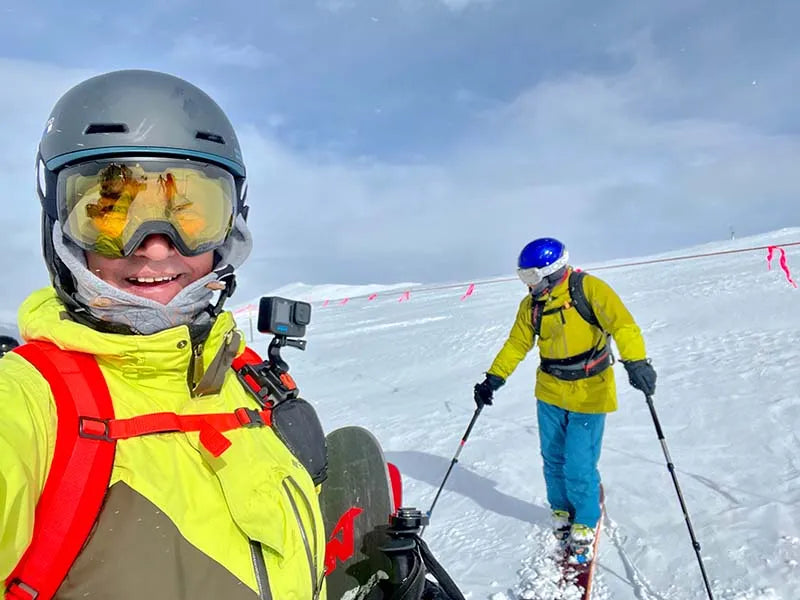
Skiing and snowboarding give you an excellent cardio workout, especially if you're a beginner. Like interval training, your body experiences short bursts of intense activity, followed by a rest on the ski lift, bringing your heart rate back down.
Depending on your ability, weight, and gender, you can burn between 300 and 600 calories an hour while snowboarding. More advanced riders burn fewer calories as they have more refined techniques. They also save energy by letting their skis or snowboards run straight more rather than constantly turning to manage their speed, which uses lots of energy.
If you really want to burn calories on snow, you can forget about the lifts and hike up the mountain with touring skis or a splitboard. This is especially challenging in deep powder when you need to break the trail. Alternatively, you can take up cross-country skiing, which can burn over 1,300 calories an hour if you keep the pace up.
This high level of calorie burning should go some way to neutralize the effects of all the food and booze you'll consume while sampling the other attractions in the ski resort.
5. You Get Stronger Bones
Skiing and snowboarding put your joints and bones under constant physical activity. Therefore, your body adapts by making them stronger, making them less likely to get injured. If you ride a lot, your bones will become thicker and denser over time, allowing them to take more punishment.
However, you need to fuel this process with proper nutrition. So it would be best to increase your vitamin D and calcium intake.
6. Improves Proprioception
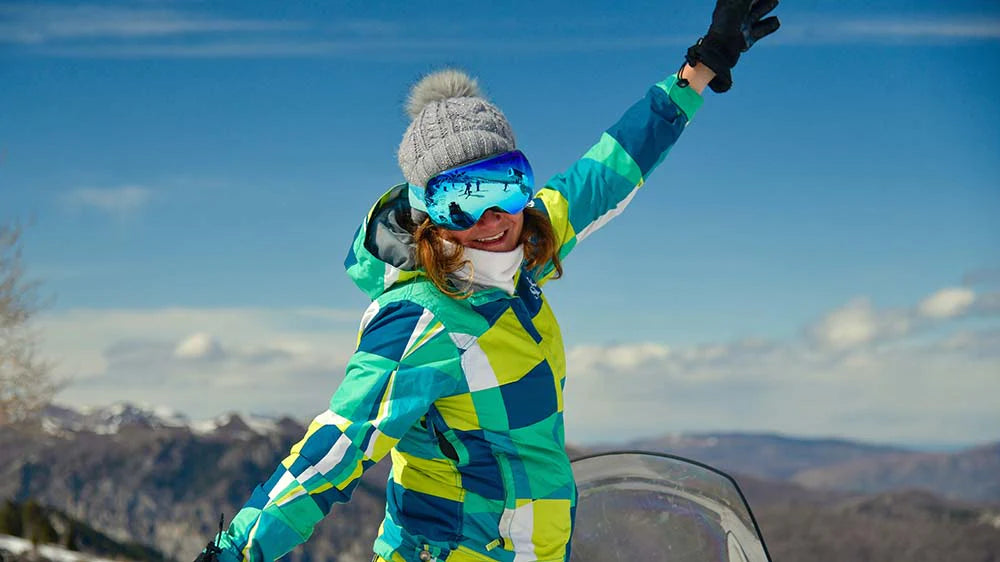
Proprioception is your ability to feel where your different body parts are and is enhanced by sports such as skiing and snowboarding. Skiing and snowboarding require lots of balance and coordination, so you need to be conscious of your body's tiny movements and positions that keep you on your feet.
Next time you're riding, think about what your feet are doing. You'll notice that they automatically make micro-movements to keep you in control. This is something that diminishes with age, so if you do lots of proprioceptive activities, the less it will weaken, preventing falls in your old age.
7. Skiing And Snowboarding Work Wonders For Your Mental Health
Skiing and snowboarding are just as good for your mind as they are for your body. We know that exercise improves our mood by giving us a shot of endorphins into our bloodstream. It also helps us fight depression and anxiety.
So when you combine these effects with fresh air, incredible views, and an adrenaline kick, you're bound to be better mentally after a great day on the mountain.
8. Skiing And Snowboarding Are Social Activities
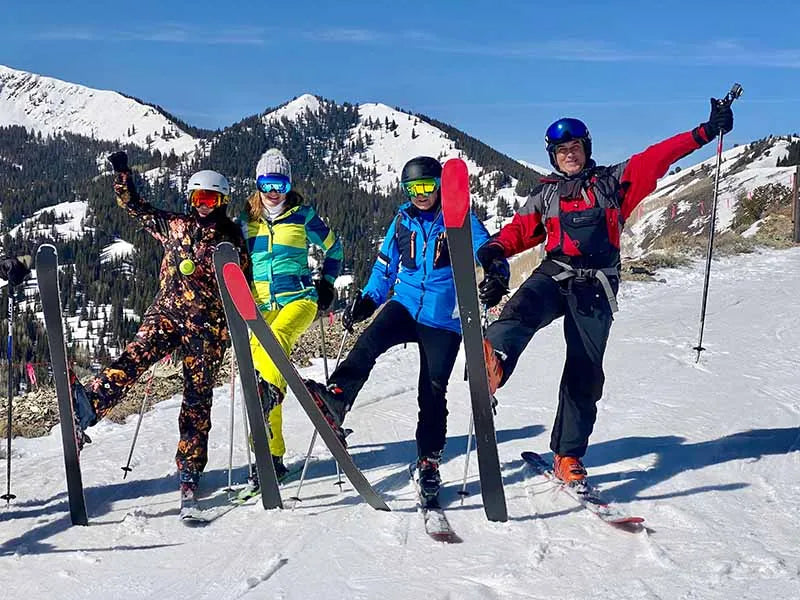
Whether you get talking to someone in a bar or go to a ski resort with a group of friends and family, skiers and snowboarders have a common interest, bringing them together.
Skiers and snowboarders like to share their experiences, give others tips on the best places to go, and have fun together. This is a big part of the mountain lifestyle that continues long after you finish your day on the slopes.
I've met many people over the years through skiing and snowboarding. I always bump into them in ski resorts, airports, and even places that are nowhere near the mountains. It's a pretty close-knit community that creates lifelong friends and many stories.
This social aspect is another excellent way skiing and snowboarding boost your mental health.
9. Skiing And Snowboarding Are Character Building
The nature of skiing and snowboarding is pretty diverse. Depending on your ability and what you want to do, one day, you can be cruising the blues and the next, hiking into the backcountry in horrendous weather and dangerous conditions.
This diversity means you become more resilient and adaptable as a person. It builds confidence in your abilities and helps you to solve problems. Therefore, your mental well-being is improved further.
10. They Help You To Sleep
There's a close relationship between exercise and being able to sleep well. The more you exercise, the sooner you get to sleep when your head hits the pillow. It also reduces the likelihood of sleep apnea and insomnia.
So spending a day shredding the mountain in fresh air is an excellent way of improving your health from a sleeping point of view. Which is great, as snowboarding and sleep are two of my favorite things!
11. Improves Your Circulation

Your heart pumps blood around your cardiovascular system delivering nutrients and oxygen to your muscles, organs, and tissues. It also removes waste products and protects you from invading bodies. So any activity that will improve the health of your cardiovascular system is well worth doing.
Skiing and snowboarding take lots of physical effort and get our muscles working. Therefore, your heart has to pump extra nutrients and oxygen to the parts of your body that need it the most. This makes your cardiovascular system work hard and adapt to become more efficient. The knock-on effect is that you can exercise for longer and shred from the first to the last lift.
Final Thoughts
As you can see from a health perspective, skiing and snowboarding are well worth doing. But they happen to be lots of fun too, so if you like to slide down mountains on planks, you're in a win-win situation.
Skiing and snowboarding allow you to burn fat and build a stronger body while improving your mood and giving you a social life. You'll enjoy your skiing or snowboarding trip more if you already have a good fitness level.
With this in mind, you should start exercising 6 to 8 weeks before you head for the hills. Your endurance will be much better, you will be able to perform better, and you will be less prone to injury. All of these things will allow you to enjoy your trip much more.


